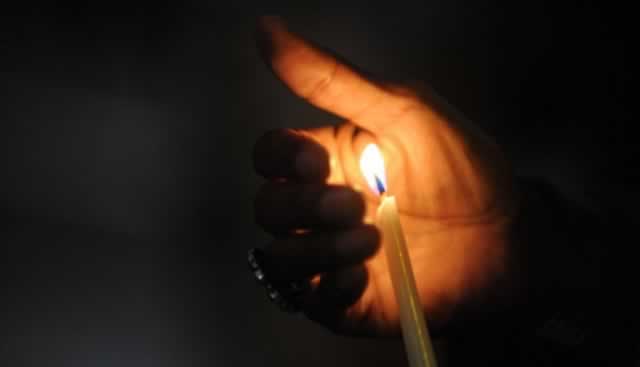Can someone knock some sense into ZESA?

 Beatrice Tonhodzayi-Ngondo Make A Difference
Beatrice Tonhodzayi-Ngondo Make A Difference
Seasons always change.
From the time I was old enough to chant and sing, I understood something; that day always gives in to night and night gives way to day.
As long as you have been blessed enough to see another day, this cycle does not change.
I also joined other children in singing, ‘summer, autumn, winter, spring.’
In Zimbabwe, not many people talk of spring and autumn.
The majority use winter and summer to break the year into two; those warm, summery and rainy periods on one side, then the dry, cold and unfriendly periods on the other.
Thus anyone with common sense knows that as much as it will be very hot at some point in the year, there are periods when it gets very cold.
Climate change may be playing around with the weather a bit in that it has become somewhat unpredictable with weather patterns being extreme in some instances (too hot instead of sunny or drizzly and cold instead of cool.)
But one thing is for certain; winter is a natural part of the year’s cycle. If winter does not come, something would have gone very, very wrong.
The traditional leaders of the country and other custodians of culture would certainly convene a gathering to try and find out from the ancestors just what would have gone wrong.
In the churches, our leaders would also call for prayers to intercede and plead with the Mighty One above to bring things back to normal. Because winter is normal, some mothers go for shopping trips specifically in preparation for the cold weather. They will stock up on warm clothing for their families.
After all, colds are synonymous with low temperatures.
Blanket manufacturers and retailers get busy when the winter season is approaching.
People rush for the blankets well ahead of winter.
Poor planners are the ones who go and stock up on the blankets right in the middle of winter when demand has gone up; pushing up prices in the process. The point I am trying to make is that winter is normal and it comes every year through no fault of our own.
That is why I join the many Zimbabweans who are disgusted at the latest statement by the power utility ZESA, that people must brace up for power cuts of up to 16 hours daily.
In a 24-hour day, if one has no power for 16 hours, then they may as well be going through life without power.
If ever ZESA wants to punish people who are already stressed by tough economic conditions many of us seem to be living under, they should continue with this madness.
Most people go to sleep and wake up with no power.
When driving home from work, I literally do a small dance in my driver’s seat whenever I see the traffic light leading to our suburb working. This is how far we have been reduced. Children coming from school literally crane their necks to see if the robots are working. You then hear a small voice saying; “oh no there is no ZESA at home.” More often than not, it is that sad small voice I hear as opposed to the excited and relieved one.
While we all know that Zimbabwe, like other African countries has challenges with power generation, at times we expect ZESA to take its business and the people of this country seriously.
To announce that load shedding will be increased because we are in the winter season is a joke.
Who in their right mind does not know that winter comes around this time of the year?
Just as families plan for winter by stocking up on warm clothes, blankets, heaters, firewood and many other necessities, why should ZESA be any different?
Does ZESA do anything different to cater for the increased demand that winter always brings, at least according to them?
When they say increased domestic demand, just what do they mean because most of the people I know spend the day working hard in some office, street corner, farm yard or even car seat? They only go home at the end of the day.
The same goes for school children. It is only three or so hours when families sit down in front of a heater or fire and eat supper together.
A few take a bath though the number significantly goes down in winter. Thus I am curious to know what pushes the demand.
In these days of prepaid metres, many families I know including mine, switch off the geyser during the day and some even choose to use heaters over electrical ones.
Many others have gas stoves nowadays as a means of not only saving power but keeping their costs to a minimum. Where is the increased demand coming from then? Some of us work in the industrial areas and there is a sad tale of low production.
A few companies are operating at full capacity. The rest are half dead.
So again, who is pushing up this demand? Most companies in the Southerton area, rely on generators in both summer and winter because of load shedding.
Thus, I seek an explanation of where the increased demand is coming from today. If it was anticipated that there would be increased demand, why wasn’t something done about it earlier? I am also curious at how the country is supposed to move forward when the few players remaining in industry are subjected to ruthless power cuts as is the case now? How can farmers produce when there is no power half the time? Is this seriousness on the part of ZESA?
The President has since said the time to tolerate mediocrity is gone. People must be paid to perform. Some of these people do not earn small change by the way.
They drive expensive cars too.
The least they can do is use their brains to bring about results.
How long shall we talk about challenges without any solutions being proffered?
The only solution I have heard coming from the energy sector is about tariff hikes.
In the past they said prepaid metres would also improve power supply as people would use electricity they paid for and be more responsible. So why not give everyone the prepaid metres?
These urban areas must have running water and electricity period!
It is just the way it is.
As far as I know; water and electricity are part of the deal when one is living in the city.
Kumagetsi was the name given to cities by rural folk back then.
Admittedly, there are challenges in terms of power generation capacity and everyone knows it.
Even other Africa countries face similar challenges.
But that does not mean people should rest on their laurels.
It also does not mean cutting people off for such long periods of time. Many people who want to watch the World Cup are going to be disappointed.
But for many of us it is about lighting, cooking and just keeping warm. An urban home cannot be a home without power.
Ask any primary school pupil and they will tell you this. Even an infant starts to howl once power goes off.
Let us have some solutions from ZESA please. It is long overdue.
ZESA must stick to the schedule they recently published in the Press just as other countries do.
Load shedding must be fair.
It must be clear how certain areas will be switched off while others are on and vice versa. This system of having some areas not having power daily while others always have power is also a big NO.
ZESA, less excuses and more action would certainly make a difference!








Comments